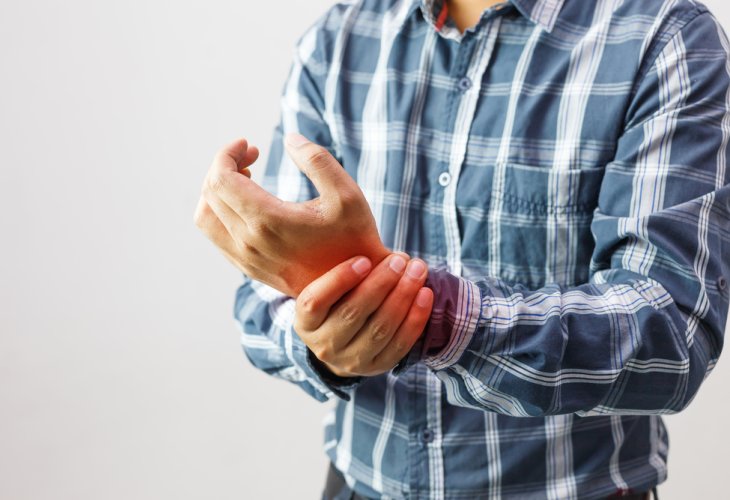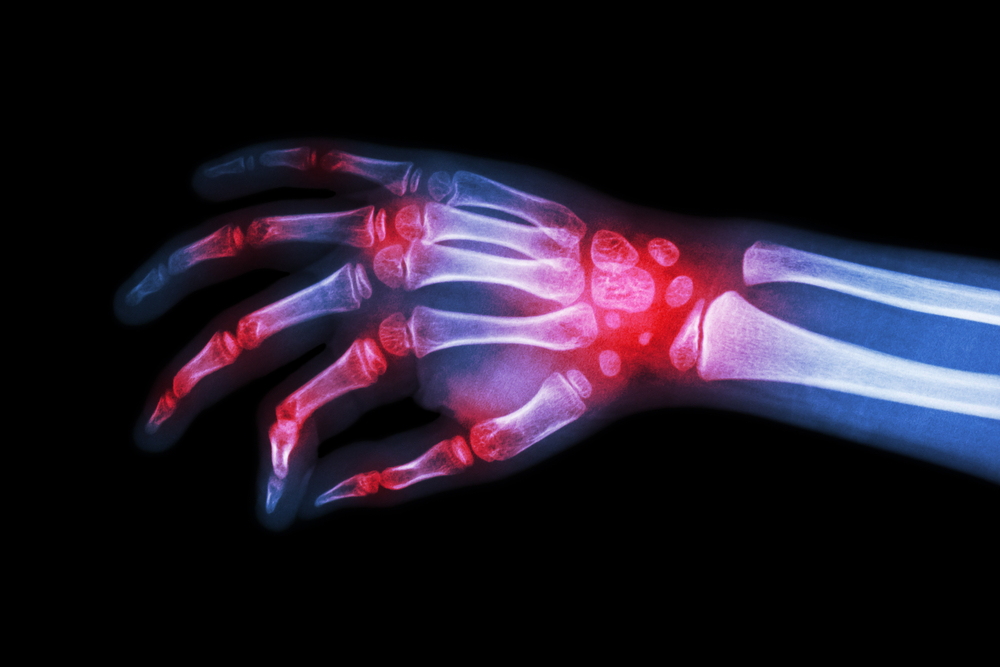Understanding Osteoarthritis: Effective Strategies for Relief
What is osteoarthritis, what causes it, and how can we manage it after it develops?
 (Photo: shutterstock)
(Photo: shutterstock)All the joints in our body are cushioned with a soft connective tissue called cartilage, which prevents bone friction.
A joint is where two bones meet, allowing free movement thanks to a soft tissue called cartilage, primarily made of collagen—different from the skeleton, which is made of collagen combined with minerals. The problem mainly arises in advanced age, when the body's breakdown process outpaces regeneration, leading to cartilage loss. When tissue in the body degrades, inflammation may occur as an immune response to indicate improper damage, signaling the need for treatment.
Risk factors include: excess weight, diabetes, free radicals.
Symptoms: sharp pain, difficulty in joint movement, swelling, "deformation"—crooked fingers or redness.
It's advisable to lose weight to prevent inflammation despite the wear. According to a senior knee surgeon, the most recommended remedy—which isn't covered by health insurance—is a hot compress... The heat softens the blood vessels, improving blood flow to the area and promoting healing. It is beneficial to reduce animal fats to prevent high arachidonic acid levels, which cause inflammation. Instead, consume healthy fats: omega-3, flax seeds, nuts, almonds, and olive oil. The inflammation will disappear. Supplements like "Celadrin" with added MSM capsules or cream help reduce swelling and pain, enabling cartilage renewal with glucosamine and chondroitin. Anti-inflammatory herbs for the skeleton include boswellia, horsetail, harpagophytum—in capsules or tincture, and turmeric capsules.
Boost antioxidants in the diet with a variety of colors: dark green—leafy greens, red—pomegranate and berries, orange—orange vegetables and turmeric.
Rheumatoid Arthritis
Rheumatoid arthritis is an autoimmune disease where the body attacks its own joints. Typically, the hands and feet are affected first, and the disease can impact the entire body. It commonly affects individuals aged 25-50, with more women affected than men.
 (Photo: shutterstock)
(Photo: shutterstock)Common symptoms of rheumatoid arthritis: fatigue, low-grade fever, weakness, joint difficulties, painful and inflamed joints, deformation of the finger and toe joints.
Causes of the disease—The body develops antibodies that attack tissues surrounding the joints. Some see lifestyle and allergic diets as significant contributors, as well as imbalances in the intestinal bacteria and gut flora.
Treatment for Inflammation
Certain blood tests can confirm the presence of the disease:
Erythrocyte Sedimentation Rate—usually between 0-20 are normal values. Above this indicates inflammation in the body.
The CRP level should be between 0-0.5. The lower, the better the health. A value above 5 needs monitoring and retesting after two months. If the values increase, this is not good. If they decrease, the body is healing.
Rheumatic Factor—Specific test for R.A.
Treating this issue is challenging. Practical effort requires a lifestyle change with determination and consistency. The diet should be hypoallergenic, meaning known allergens should be eliminated: milk and its products, wheat, peanuts, corn, cocoa, chocolate, white sugar, vinegar, alcohol, coffee, citrus fruits, meat, and its products. These foods increase blood acidity, causing inflammation. On the contrary, eat hypoallergenic foods based on quinoa, basmati rice, oats, legumes, all vegetables except nightshades—tomatoes, peppers, eggplants, and potatoes—fruits, especially red, almonds (not nuts), pumpkin seeds, and sunflower seeds, raw.
Eat foods rich in natural antioxidants, like berries, green tea, pomegranate, broccoli, onion, and garlic, as well as fish containing polyunsaturated fatty acids, mainly omega-3, like salmon, mackerel, and herring.
Numerous studies highlight the importance of supplementing omega-3 fatty acids, which are effective in treating inflammation and autoimmune diseases.
Zinc mineral can calm the heightened activity of white blood cells causing the disease.
Bromelain—found in fresh pineapple—is an enzyme that breaks down proteins, also having anti-inflammatory properties. It relieves pain in the joint areas.
Probiotic supplements—good bacteria—maintain intestinal flora balance and prevent undigested protein leakage into the bloodstream, which triggers allergic and autoimmune responses.
Herbs for infusion—one teaspoon in a cup of boiling water, wait 30 minutes, and drink. Suitable herbs are chamomile, ginger, nettle, dandelion root, and red clover.
For those taking prescription drugs, treatment should be accompanied by nutritional counseling.
To arrange home group gatherings with Rabbanit Rachel Bezeri, call 073-2221240 or 052-9551588

